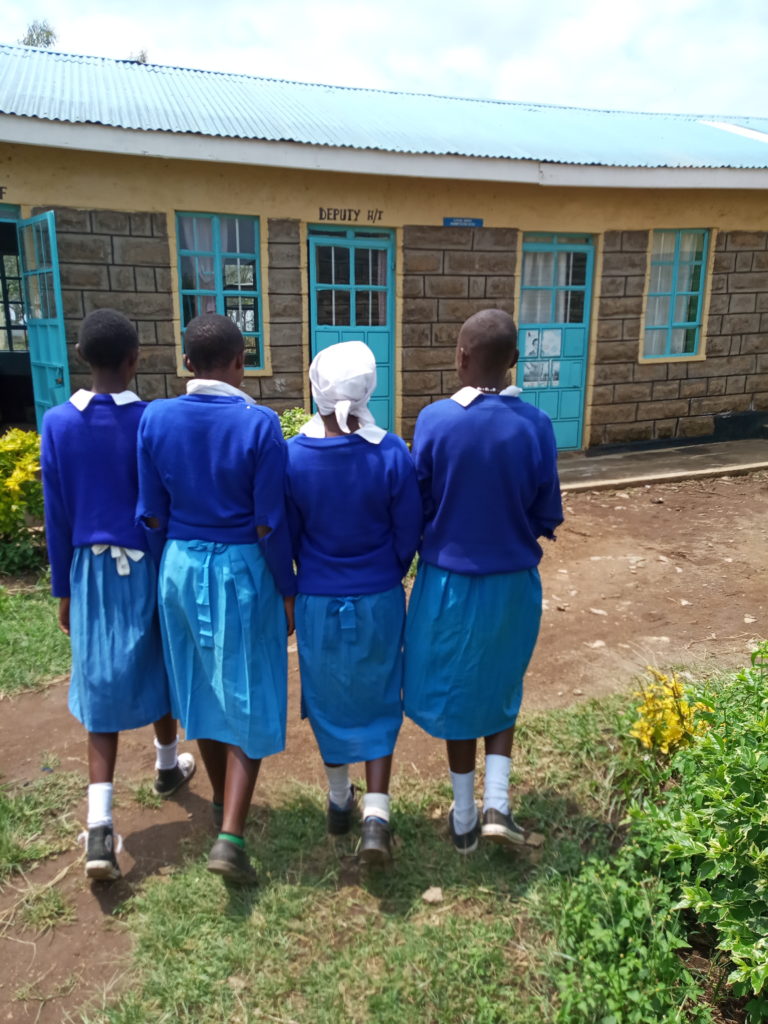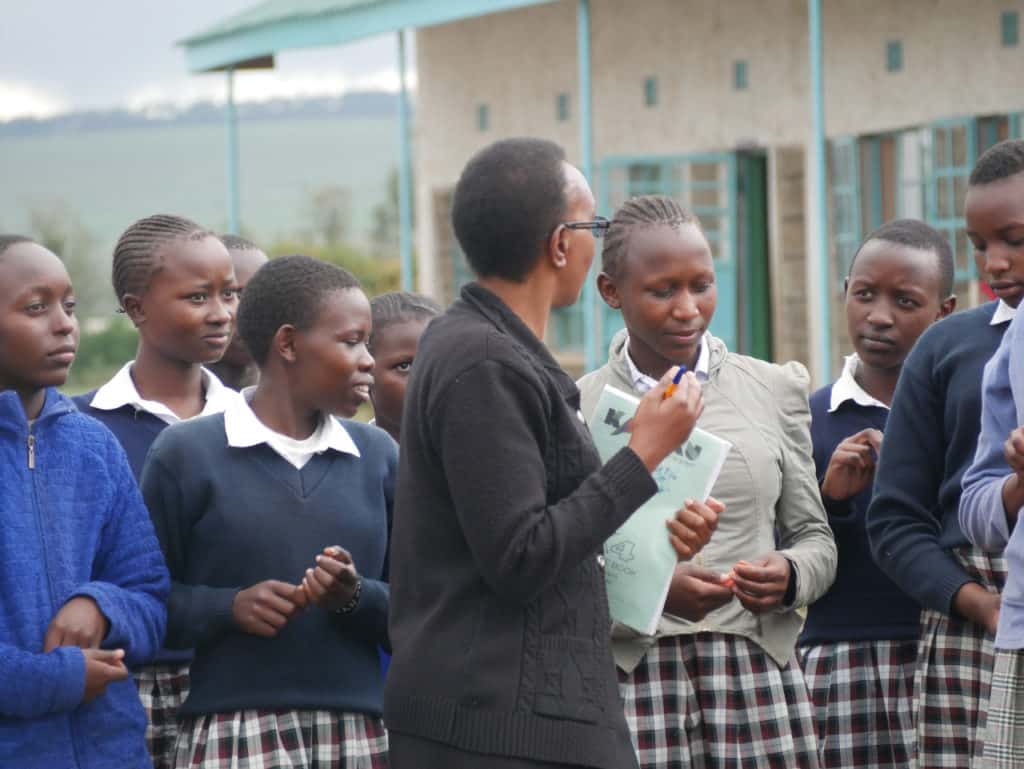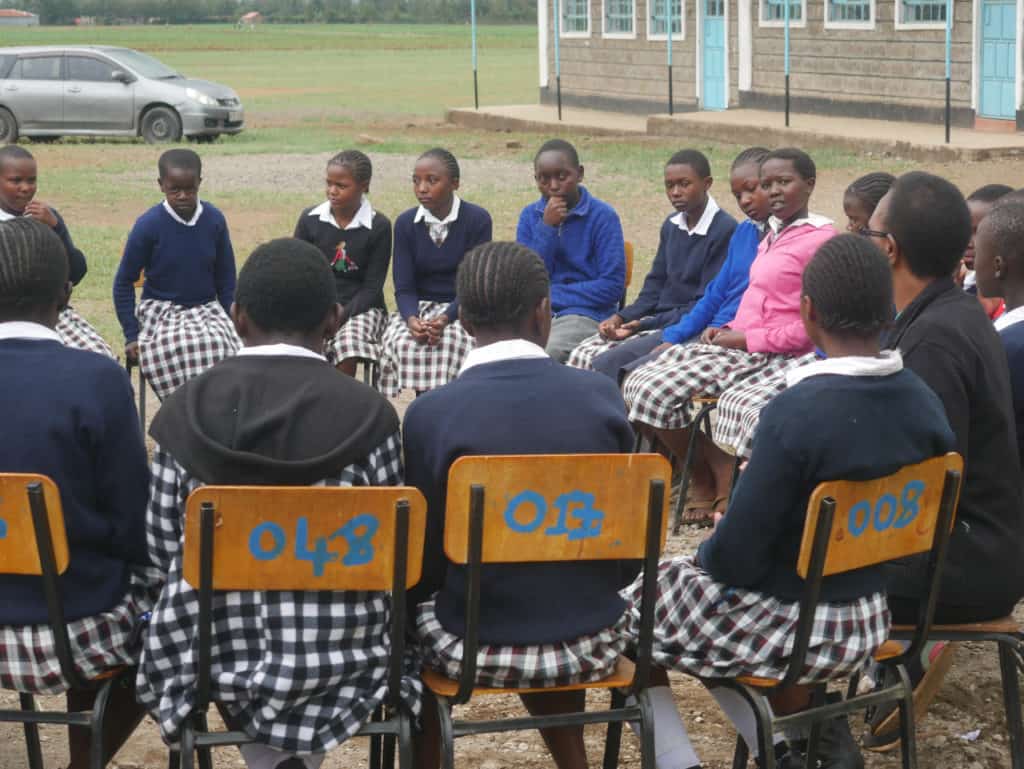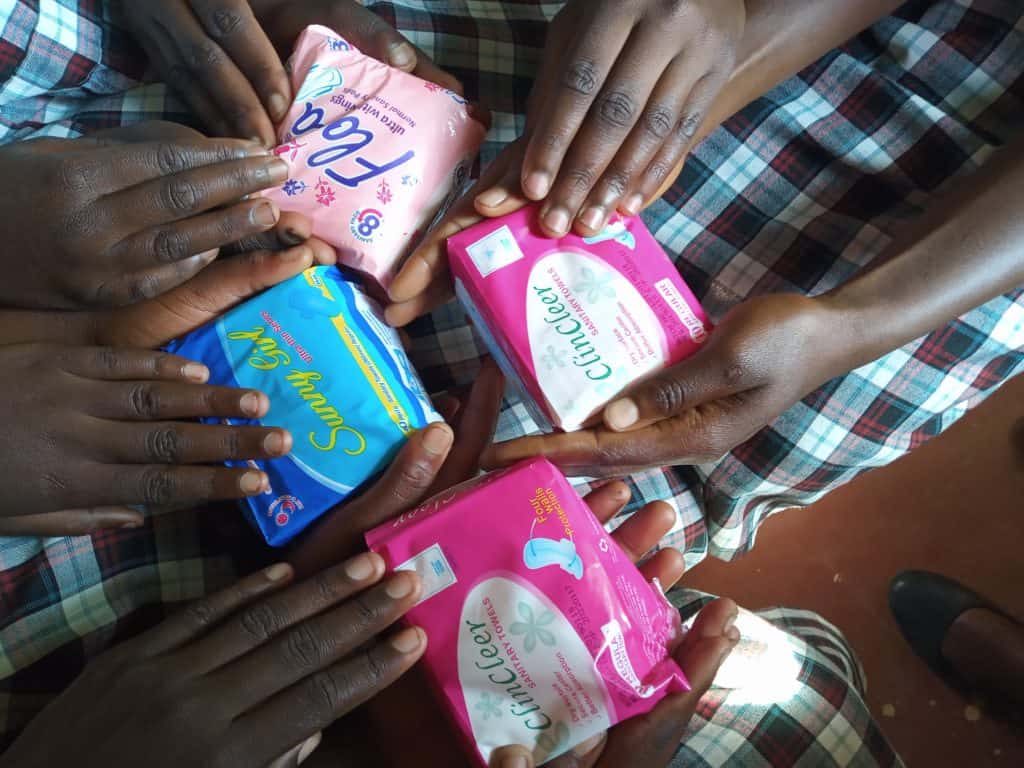I had just got to work and was settling down when I heard a knock on the door. One of my female students was standing at my door with a worried look.
I invited her inside and closed the door quickly—my instincts told me all was not well.
We’ll call my student Angela.

Angela asked me to lend her some money to buy sanitary pads, and promised to pay me back the following day. She told me that her mother could only raise the money the following day. She didn’t know where else to go, and she came to me because the matter was most urgent.
Angela later returned, wearing a wide smile and thanked me. And true to her word, she paid back the money as promised.
In the two years that I have worked in the communities that Village Impact serves, I am sad to say that this scenario doesn’t surprise me.
A lack of access to hygiene products that keep girls healthy is a persistent problem that stretches across both primary and high schools.
Though the government tries to supply free sanitary pads to ensure that girls stay in school even during their menstrual cycle, the demand is too high and the gap is too wide.
This issue is so commonplace, that educating parents on how they can save a little money every day for the sake of their daughter’s health and self-esteem, and emphasizing the importance of keeping them in school so that they can compete fairly with their male peers, has become a routine meeting.
It is especially a problem with many of our students basically live on their own because their parents are almost always away working, or they live with grandparents who can not provide any extra money for these essentials.
Issues of low self-esteem and shame are deeply associated with the perfectly normal and natural monthly menstrual flow.
The positive in this is that I have found that educating parents about the importance of providing hygiene products for their daughters have resulted in an increase in their efforts to ensure their daughters have what they need.
Additionally, we have made strides to educate our female students, encouraging them to keep a ‘safety nest’ in their school bags–as they are still undergoing adolescence, irregularity is very common. This saves them the shame of soiling their uniforms and upholds their privacy. Young ladies who require medicine to control pain are taught to keep a few pills with them at all times.


Being intentional in educating and empowering our female students has brought about better relationships between these young women and their parents/guardians, as they feel loved and that their needs matter. Their self-esteem has improved dramatically. They have become courageous if they need to seek help for the day.
The most important difference? More and more young ladies are now staying in school consistently!
With all this in mind, I collaborated with the school administration to keep some sanitary pads in my office, and with another female teacher, to ensure we are prepared if a surprise situation arises. Contributions to purchase these supplies come from administration and/or teachers’ contributions, depending on the school.

What I have learned from the experience is,
“What is basic to one person is not so basic to another person!”
By Elidah, School Counselor
